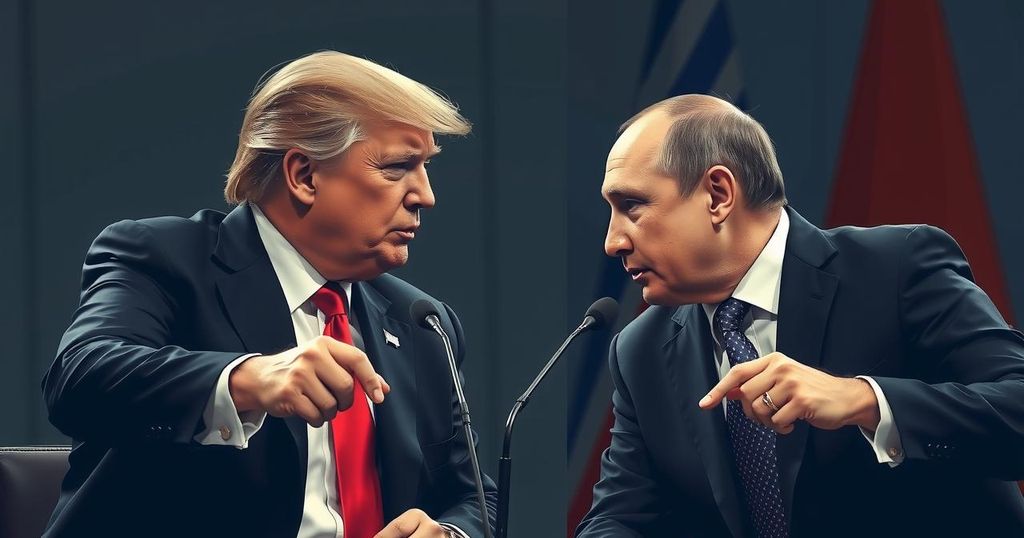Putin’s Manipulation of Trump Post-Election: An Analysis

Following Donald Trump’s election victory, Russian President Vladimir Putin’s actions suggest a manipulation of Trump’s perceptions. Delayed congratulatory messages and denials of conversations create an atmosphere of uncertainty, while Russian officials hint at obligations stemming from Trump’s rise. The situation could challenge Trump’s foreign policy approach and highlight the complexities of U.S.-Russia relations.
Less than a week following Donald Trump’s electoral victory, Russian President Vladimir Putin appears to be subtly influencing Trump’s mindset. Initially, Putin delayed congratulating Trump, which may have left the incoming president questioning his admiration for the Russian leader, especially as world leaders quickly reached out to him. Subsequently, when Trump stated he had warned Putin against escalating the Ukraine conflict during their conversation, a Kremlin spokesman outright denied that the two had spoken. This creates a situation where, as Putin mobilizes fresh troops for aggressive actions in Ukraine, he could dismiss any discussions with Trump as mere fantasy. This reflects a potential reality check for Trump on the limits of personal relationships in geopolitics. Furthermore, comments from Nikolai Patrushev, Russia’s intelligence chief, added further complexity. He indicated that Trump had allied with certain forces during his campaign and now holds obligations to them, suggesting a form of psychological manipulation or possible blackmail. It raises questions about Russia’s role in Trump’s rise and the ongoing attempts to destabilize American democracy. Though there is no evidence of Trump colluding with Russian misinformation campaigns targeting the 2020 election, Patrushev’s remarks could signal an ambitious attempt at coercion. Trump’s inclination towards reconciling with Russia stands in stark contrast to mainstream views within his own party, and even his appointed Cabinet members might diverge from his perspective on Ukraine. As the political landscape evolves, one can only speculate how Trump will react to the revelation that Putin may not be as supportive a figure as he once believed. The implications of such realizations could shape his foreign policy and alignments significantly in the forthcoming term.
The relationship between Donald Trump and Vladimir Putin has long been a point of contention and intrigue in American political discourse. Trump has publicly expressed admiration for Putin, often leaning towards a foreign policy that prioritizes reconciliation between the United States and Russia. However, the dynamics surrounding their interactions raise concerns about potential manipulation and the broader implications for U.S. democracy and foreign relations. The recent comments from Russian officials suggest a calculated strategy by Russia to assert influence over Trump’s forthcoming administration, especially amid ongoing conflicts such as the war in Ukraine.
In summary, Putin’s measured approach following Trump’s election and his subsequent actions appear designed to test the incoming president’s resolve and establish Russian leverage over U.S. foreign policy. The implications of this relationship, marked by ambiguity and potential manipulation, may redefine Trump’s position on key international issues, particularly concerning Ukraine. As he navigates these waters, he must reconcile his past beliefs in Putin’s amiability with the realities of international politics and national interests.
Original Source: slate.com








